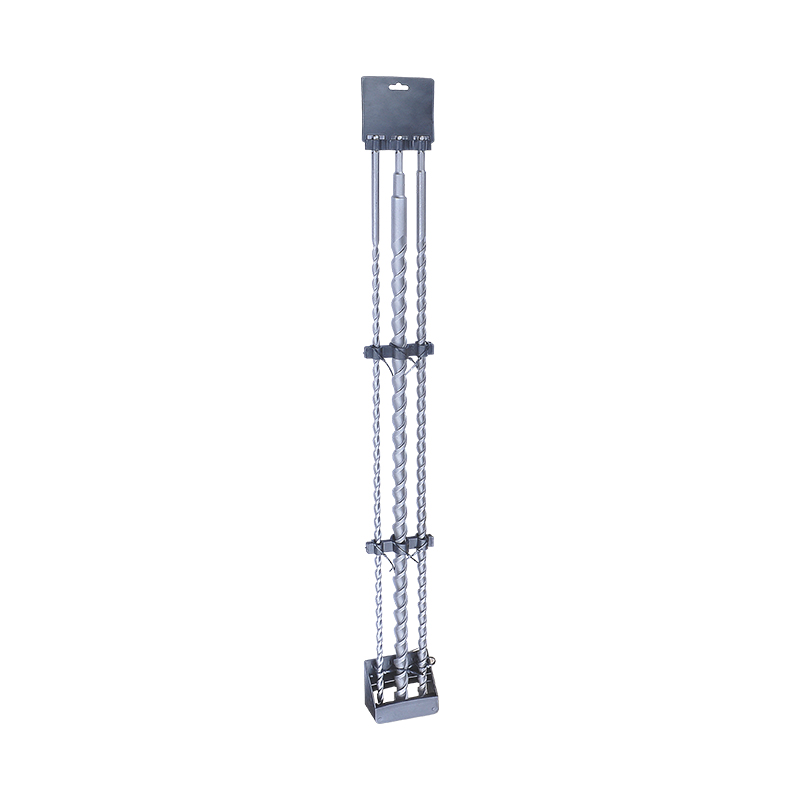2025-10-17
The SDS Plus Hammer Drill is designed to deliver powerful drilling performance across multiple types of materials, making it a widely used tool in both professional construction and home renovation. Unlike conventional drills, it employs a unique bit-locking and hammering mechanism that enhances impact force while maintaining precision. One of the most important aspects to evaluate is how this tool performs on different materials such as concrete, masonry, and wood, as each presents unique resistance levels and drilling requirements. Understanding these differences provides valuable insight into the adaptability and efficiency of the drill in real-world applications.

Concrete is often regarded as a tough material to penetrate due to its dense structure and frequent inclusion of aggregates. The SDS Plus Hammer Drill demonstrates good performance on this material by combining rotational force with hammering action. The hammering function helps break down the dense matrix of concrete, reducing the effort required from the operator and preventing excessive wear on the drill bit. Compared to traditional rotary drills, the penetration rate in concrete is considerably faster, and the likelihood of bit slippage is reduced. Even in reinforced concrete, the drill can achieve effective results, though specialized bits may be necessary when encountering steel reinforcement.
Masonry materials such as bricks and blocks offer a different set of challenges. While generally less dense than concrete, they can still cause difficulties due to irregular hardness and brittleness. The SDS Plus Hammer Drill adapts well to masonry by delivering a controlled impact force that prevents cracking or excessive material chipping. Its secure chuck system ensures stable drilling, which is especially important when working with brittle bricks that might fracture under uneven pressure. The drill’s ability to maintain consistent penetration without damaging the surrounding structure makes it highly effective for tasks such as installing anchors, conduits, and fixtures in masonry walls.
Wood presents a completely different scenario compared to concrete or masonry. Unlike those harder materials, wood requires more precision and less impact force to prevent splitting or rough edges. The SDS Plus Hammer Drill, when used in rotation-only mode, handles wood effectively, especially with the appropriate flat or auger bits. Its high torque allows for clean holes even in denser hardwoods, while the design ensures smooth drilling with minimal vibration. The versatility to switch between impact and rotary-only functions is what enables the tool to adapt seamlessly from construction-grade materials to softer mediums like wood without compromising efficiency or finish quality.
When comparing performance across concrete, masonry, and wood, it becomes clear that the SDS Plus Hammer Drill provides a balance of power and adaptability. In concrete, the hammering function offers speed and durability. In masonry, controlled force ensures precision without structural damage. In wood, the rotary-only option provides clean and accurate drilling. This versatility highlights why the drill is favored in multi-material construction projects, where workers may transition between different surfaces within the same task. Instead of switching tools, the operator can rely on one device capable of handling diverse drilling demands.
The drilling performance of SDS Plus Hammer Drills across different materials demonstrates their role as versatile and dependable tools. Whether facing the density of concrete, the fragility of masonry, or the softness of wood, the drill provides tailored efficiency through its specialized mechanism and adaptable functions. This ability to adjust impact and rotation ensures not only effective results but also reduces risks of material damage and operator strain. As a result, the SDS Plus Hammer Drill remains a preferred choice for professionals and DIY enthusiasts seeking one solution for a wide range of drilling applications.